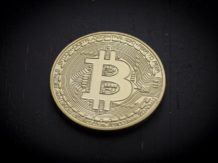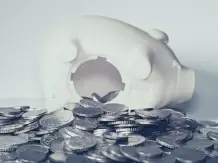For those who do not know, the Blockchain (blockchain) is roughly the P2P (Peer to Peer) type distributed information record which has a consensus protocol that guarantees the security and transparency of transactions without the need for intermediaries
The information contained in the chain is immutable, so it is not possible to alter or edit it. Its main purpose is not to host data but to record transactions.
Before the blockchain, cryptocurrencies such as bitcoin have become extremely famous in recent times, as a result of a boom that is not over yet. Their reliability has been called into question, however today they are necessary.
Countries such as Japan, Australia, Switzerland, the Netherlands, South Korea, Estonia, Ukraine, South Africa and Belarus have adopted them, a trend that is growing as Christine Lagarde has said, saying that central banks must increasingly be receptive to the transaction of this type of currency because it speeds up and lowers the cost of operations, makes the payment system more efficient and allows the base technology to be used to protect the confidentiality of the data.
While it is very worrying that the lack of regulation allows comparisons to be made with the tulip fever that swept Holland in the 17th century and the recent dot bubble, over time they will become increasingly necessary, as part of the digitalization of the contemporary world.
The Blockchain, the technology behind Bitcoin and in general of all cryptocurrencies, has different uses, not only for financial transactions. In the public sector it has reported innumerable benefits.
According to data revealed by the OECD, 45 countries have developed 202 blockchain initiatives in order to facilitate different processes such as identification (birth certificates, death certificates, visas and marriage records), personal data (social security, health and pensions ), digital voting, state contracting, land and real estate registration and international cooperation among others. This is how more and more nations are developing the blockchain as part of the public policy that must be implemented.
And then how can you save the planet?
The implementation of the Paris agreement has meant that the signatory countries, as well as the companies, cities and regions that have joined, use innovative and avant-garde technologies available. The blockchain increases the transparency and trust of stakeholders, being also a solution for a problem such as climate change.
An example of this is the guarantee on the traceability of products in their supply chains, which allows consumers to verify whether they are actually acquiring a product that is in line with the United Nations objectives in the fight against climate change .
The Blockchain guarantees complete monitoring of the food chain, so any inconsistency would be detected instantly, and the buyer can make it visible, beyond the simple “green” label that is usually incorporated into a product.
Being a Pair to Pair technology, it generates direct contact between buyer and seller without the need for intermediaries. This is how the buyer of a hass avocado in the Middle East can verify the farm of origin in Colombia, as well as precise data of this and the conditions in which the avocado has been generated, until it reaches its table.
The buyer can also negotiate directly with the small farmer, which improves producer income as well as market prices. This in addition to reducing costs allows farmers to compete with large companies, makes them receive fair payment for their products and does not break, which greatly helps the growing demand for food, contributing to eliminate food insecurity problems, poverty and instability of many farmers.
In this way food fraud is also avoided, and the proper handling of hygiene and welfare standards of the product would have a detailed passport. It also guarantees the delivery of products more efficiently. At the Latin American level we can find a concrete experience in Costa Rica, where with the help of the Blockchain the traceability of the Coffee is being evidenced, which has been fundamental to obtain a better price, as well as innumerable environmental benefits within which the decrease of 1.85 million tons of CO2 over the next 20 years.
The Blockchain, in combination with sensors, has the ability to automate the monitoring, reporting and verification of the environmental impact of projects. This is a particularly useful tool for monitoring forests, renewable energy and carbon bond transactions, which reduces operating costs and increases profits. In terms of emissions inventory and the transaction of these has been a great help.
Cryptocurrencies also help
Cryptocurrencies beyond being classified as useless and dangerous, have also been considered as harmful to the environment, as they spend significant amounts of energy, particularly in countries such as China, where one of the main sources is coal, an important agent generator pollutants as well as greenhouse gas (GHG) emissions.
For this reason, as well as the principles of governance of these companies and the accession of China to the Paris Agreement, several cryptocurrency companies are being established in countries such as Iceland, Sweden and Norway, where the main source of energy is wind, geothermal and hydroelectric, which lowers costs and meets the standards imposed by the United Nations.
There are also currencies such as ClimateCoin, the bitcoin of Climate Change.
On the other hand they contribute greatly to the reduction of felling of trees that have as their purpose the printing of paper money. This is good in terms of reducing emissions and deforestation goals.
Carlos Gustavo Cano, Former Co-Director of the Banco de la República, once mentioned that the Bank should be zero carbon in the future. Perhaps, although he did not say it, this is one of the ways to do it.
What we are doing in Colombia
So far in the matter of Blockchain the national government has not developed anything in particular but has proposed doing so, which is an important step. Recently a project prepared by the National Land Agency was announced that would use the Ethereum blockchain to reduce times in the land restitution process.
It would be an excellent idea to use blockchain technology for cadastral updating, to demonstrate among others the vacant lots and to verify those areas that are being devastated by drug trafficking. This would be more than adequate for regions such as the Amazon, which would also contribute to the development of the drug policy.















